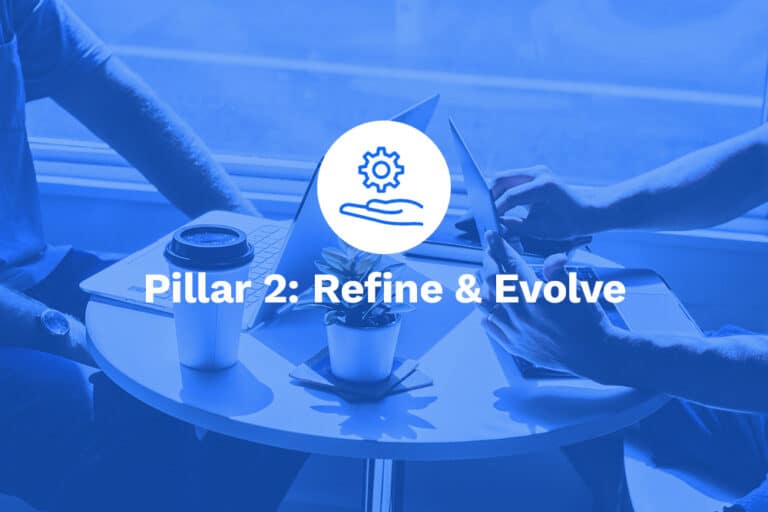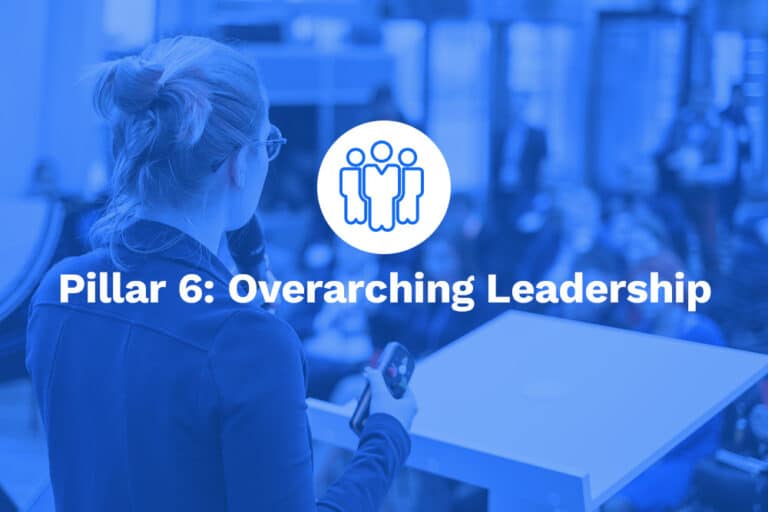Pillar 4 – Influence: Staffing & Ramping
Competency Overview
At Leader Loop, we view Staffing & Ramping as distinct from Managing & Coaching, each holding separate value for your career advancement when polished and leveraged correctly. Staffing & Ramping focuses on ensuring that staff have the necessary skills and resources to succeed, aligning work to the right people, and holding timely discussions and performance reviews. It also involves holding oneself and the team accountable to clear expectations and making recommendations for resource investments when needed. Anticipating and proactively adjusting to changing needs and future requirements are essential aspects of this competency. Mastering this skill is crucial for building and maintaining a high-performing, adaptable team.
Leveling Up
Mastering Staffing & Ramping sets you apart as a leader who can build and optimize teams effectively. This competency helps you identify and address skill gaps, delegate tasks according to strengths and interests, and ensure that performance standards are met. Being proficient in Staffing & Ramping enhances your ability to drive team performance and organizational success. Developing these skills can significantly boost your career, as organizations highly value leaders who can strategically manage and develop their teams while anticipating future needs and changes.
Why It Matters
- Skill and Resource Optimization: Ensuring that staff have the necessary skills and resources to perform their roles effectively.
- Effective Delegation: Aligning work with the right people based on their strengths and interests to maximize productivity.
- Performance Management: Holding timely discussions, providing feedback, and conducting performance reviews to maintain high standards.
- Accountability: Holding oneself and the team accountable to clear expectations and project goals.
- Strategic Resource Recommendations: Making informed recommendations for resource investments to support team and organizational growth.
- Proactive Adjustments: Anticipating changing needs and future requirements, making adjustments to team structure and business pivots proactively.
Competency in Action
- Ensures Staff Have the Skills and Resources to Get Things Done & Actions Gaps
- Common Pitfalls to Avoid: Overlooking skill gaps, not providing necessary resources, and failing to address deficiencies can hinder team performance.
- Benefits: Ensuring that staff have the skills and resources they need boosts productivity and team effectiveness, driving successful outcomes.
- Aligns Work to Right People, Delegates Tasks to Strengths or Interests
- Common Pitfalls to Avoid: Delegating tasks arbitrarily, not considering individual strengths and interests, and failing to align work with capabilities can reduce efficiency.
- Benefits: Aligning work to the right people and delegating tasks based on strengths and interests maximizes productivity and job satisfaction.
- Holds Timely Discussions, Feedback, and Performance Reviews
- Common Pitfalls to Avoid: Delaying feedback, conducting infrequent performance reviews, and not addressing issues promptly can impact performance.
- Benefits: Timely discussions, feedback, and performance reviews ensure continuous improvement and maintain high performance standards.
- Holds Themselves and Team Accountable to Clearly Set Expectations/Projects
- Common Pitfalls to Avoid: Not setting clear expectations, failing to hold team members accountable, and lacking follow-through can lead to missed goals.
- Benefits: Holding oneself and the team accountable to clear expectations ensures that goals are met and standards are maintained.
- Makes Recommendations When the Company Needs to Invest in Resources
- Common Pitfalls to Avoid: Ignoring resource needs, failing to advocate for necessary investments, and not recognizing when additional resources are required can stifle growth.
- Benefits: Making informed recommendations for resource investments supports team development and organizational growth.
- Anticipates Changing Needs and Future Requirements
- Common Pitfalls to Avoid: Being reactive rather than proactive, failing to anticipate future needs, and not preparing for changes can lead to disruptions.
- Benefits: Anticipating and proactively adjusting to changing needs and future requirements ensures that the team remains agile and prepared for any business pivots or structural changes.
How to Enhance This Competency
- Conduct Regular Skills Assessments: Regularly assess the skills and capabilities of your team to identify gaps and areas for development.
- Actionable Tip: Implement quarterly skills assessments and use the results to plan training and development initiatives.
- Delegate Strategically: Align tasks with team members’ strengths and interests to optimize productivity and engagement.
- Actionable Tip: Use a skills matrix to match tasks with the right individuals, ensuring that everyone is working on projects that best suit their abilities.
- Hold Frequent Check-Ins: Schedule regular one-on-one meetings and team check-ins to provide feedback and discuss performance.
- Actionable Tip: Set up bi-weekly one-on-ones with team members to discuss progress, challenges, and development opportunities.
- Set Clear Expectations: Clearly define roles, responsibilities, and project goals to ensure everyone knows what is expected of them.
- Actionable Tip: Use project charters and role descriptions to outline expectations and ensure alignment.
- Advocate for Resources: Identify when additional resources are needed and make a strong case for investments to support your team.
- Actionable Tip: Prepare data-driven proposals for resource investments, highlighting the expected impact on team performance and organizational goals.
- Stay Ahead of Changes: Regularly review market trends, business goals, and team capabilities to anticipate future needs and prepare for changes.
- Actionable Tip: Conduct regular strategic planning sessions to forecast future needs and develop contingency plans for potential changes.
Unlocking Potential
- Optimized Team Performance: Mastering Staffing & Ramping enhances your ability to build and manage high-performing teams, driving organizational success.
- Career Growth: Strong staffing and ramping skills are highly valued by organizations and can lead to career advancement and leadership opportunities.
- Increased Efficiency: Effective delegation and resource optimization improve team efficiency and productivity, leading to better outcomes.
- Agility and Preparedness: Anticipating and proactively adjusting to changes ensures that your team remains agile and prepared for any business pivots or structural changes.
By developing and honing the competency of Staffing & Ramping, you ensure that your team has the skills and resources needed to succeed, tasks are delegated effectively, and performance is managed proactively.
About Leader Loop: Leader Loop crafts actionable, competency-focused articles to accelerate your career growth. Our expert-written content provides practical strategies for leadership, team management, and professional development. Whether you’re a seasoned manager or an ambitious individual contributor, our articles deliver the insights you need to excel in today’s workplace.




